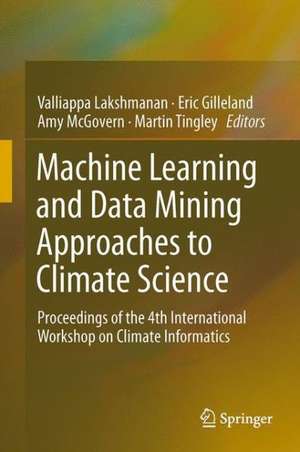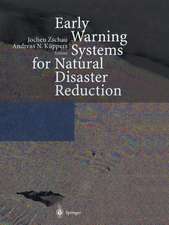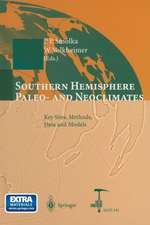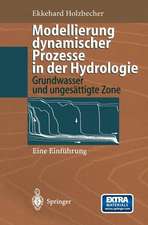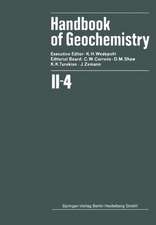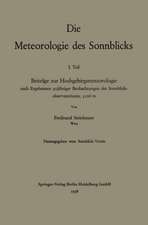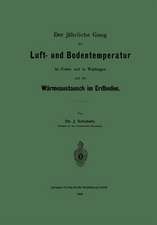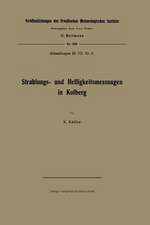Machine Learning and Data Mining Approaches to Climate Science: Proceedings of the 4th International Workshop on Climate Informatics
Editat de Valliappa Lakshmanan, Eric Gilleland, Amy McGovern, Martin Tingleyen Limba Engleză Hardback – 9 iul 2015
Preț: 948.92 lei
Preț vechi: 1157.22 lei
-18% Nou
Puncte Express: 1423
Preț estimativ în valută:
181.60€ • 197.19$ • 152.54£
181.60€ • 197.19$ • 152.54£
Carte tipărită la comandă
Livrare economică 22 aprilie-06 mai
Preluare comenzi: 021 569.72.76
Specificații
ISBN-13: 9783319172194
ISBN-10: 3319172190
Pagini: 420
Ilustrații: IX, 252 p. 89 illus., 73 illus. in color.
Dimensiuni: 155 x 235 x 17 mm
Greutate: 0.54 kg
Ediția:2015
Editura: Springer International Publishing
Colecția Springer
Locul publicării:Cham, Switzerland
ISBN-10: 3319172190
Pagini: 420
Ilustrații: IX, 252 p. 89 illus., 73 illus. in color.
Dimensiuni: 155 x 235 x 17 mm
Greutate: 0.54 kg
Ediția:2015
Editura: Springer International Publishing
Colecția Springer
Locul publicării:Cham, Switzerland
Public țintă
ResearchCuprins
Machine learning, statistics, or data mining, applied to climate science.- Management and processing of large climate datasets.- Long and short-term climate prediction.- Ensemble characterization of climate model projections.- Past (paleo) climate reconstruction.- Uncertainty quantification.- Spatio-temporal methods applied to climate data.- Time series methods applied to climate data.- Methods for modeling, detecting and predicting climate extremes.- Climate change attribution.- Dependence and causality among climate variables.- Detection and characterization of climate teleconnections.- Data assimilation.- Climate model parameterizations.- Hybrid methods.
Textul de pe ultima copertă
This book presents innovative work in Climate Informatics, a new field that reflects the application of data mining methods to climate science, and shows where this new and fast growing field is headed. Given its interdisciplinary nature, Climate Informatics offers insights, tools and methods that are increasingly needed in order to understand the climate system, an aspect which in turn has become crucial because of the threat of climate change. There has been a veritable explosion in the amount of data produced by satellites, environmental sensors and climate models that monitor, measure and forecast the earth system. In order to meaningfully pursue knowledge discovery on the basis of such voluminous and diverse datasets, it is necessary to apply machine learning methods, and Climate Informatics lies at the intersection of machine learning and climate science. This book grew out of the fourth workshop on Climate Informatics held in Boulder, Colorado in Sep. 2014.
Caracteristici
State of the art application in a new and rapidly expanding field
Includes review articles by acknowledged experts
Presents novel research in climate informatics
Includes review articles by acknowledged experts
Presents novel research in climate informatics
